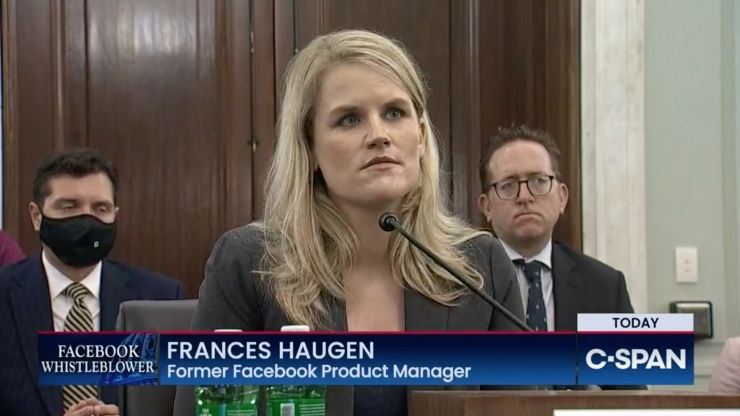The Salience of Emotional Harms
In Pursuit of Accountability for Social Media’s Mental Health Impacts
Haley Florsheim
June 4, 2023
Born in July of 1996, I am peak Zillenial—old enough to appreciate the strategic use of a laughing-crying emoji and to have once been the proud owner of light purple Motorola Razr, young enough to relate to the hard-earned cynicism of a generation steeped in clickbait and heavily edited social media profiles. I was seven in the winter of 2004 when a Harvard sophomore cracked open the Pandora’s box of the Internet Age, launching what would soon become one of the world’s most powerful corporations. My parents were skeptical of Facebook from the outset—an instinct perhaps born of the years that my mom spent as a middle school teacher, supporting her students through the challenges of preteen socioemotional development. It would be another seven years until I got their green light to register my own account, and another three until I posted my first Instagram photo.
My parents’ concerns proved well-founded. Particularly within the last ten years, a plethora of studies demonstrated that Facebook and its progeny have reshaped our individual and collective minds, causing what Professor Matthew Bergman, who serves as Founding Attorney of the Social Media Victims Law Center, described in a recent law review article as “political polarization in societies and psychological injury among many users.” I escaped the most devastating of social media’s mental health and interpersonal impacts, but, like many of my peers, I am appallingly susceptible to the siren call of a five minute social media “break” and I fall into the trap of Instagram consumerism more often than I care to admit.
In early October of 2021, former Facebook employee Frances Haugen sat before the Senate Judiciary Committee and delivered what members of Congress and the media characterized as “bombshell” testimony. In a corresponding written document, she asserted that “Facebook became a $1 trillion company by paying for its profits with our safety, including the safety of our children”—and, even more damningly, that the company knew exactly what it was doing.
Haugen’s account raised an obvious question: what would become of the smoking gun? Through a new multidistrict litigation (MDL) effort to hold Meta, Snap, ByteDance, and Google responsible for alleged social media harms, impacted kids and families may soon see their day in court. The MDL applies an innovative legal theory to confront the entrenched power of Big Tech. It may also present a subtle challenge to our legal system’s habit of minimizing or “undervalu[ing]” emotional injuries as compared to their physical counterparts.
When You Search Their Names, You See Their Obituaries
We are talking about real people, real kids. There are clues about the significance of MDL 3047 within the sanitized list of parties and the pages of procedural formalities that constitute the docket itself. Children, represented by their parents. Estates represented by family members. Names that, in some cases, correspond to obituaries.
Brantley passed away in September of 2019 at the age of seventeen. He was “smart, creative, funny, and loved learning. As a child[,] he was his parents’ and grandparents’ tag along.”
Englyn passed away in September of 2020 at the age of fourteen. She was “the baby in a large family, the center of her parents Toney and Brandy’s world.”
Selena passed away in July of 2021 at the age of eleven. “She loved to sing, dance, make people laugh, make TikToks, and to be nosey!”
There are well over 150 plaintiffs in this case, each with a unique story. Some—like Selena, Englyn, and Brantley—lost their lives. The master complaint describes how their parents grapple with the incomparable nightmare of “outliving one’s child.” Other kids have battled, or continue to battle, “anxiety, depression, addiction, eating disorders, self-harm, [and] suicidality” linked to social media use.
Procedurally speaking, MDLs involve the “consolidat[ion]” of separate cases from around the country. They are treated as one for pre-trial purposes, including the investigative stage known as discovery. After this phase is complete (and often following bellwether trials), the MDL court will assess their merits. Cases may be dismissed outright or remanded to their original jurisdictions for trial. Parties can opt to settle at any time.
Despite the particularities of each plaintiff’s experience, the cases share “one or more common questions of fact,” which make them eligible for inclusion in the multidistrict litigation effort. In MDL 3047, these common questions stem from the plaintiff’s claims regarding the nature of the platforms themselves. The complaint traces patterns of social media addiction to “product features such as ‘Likes’ [that] give users a dopamine hit similar to drugs and alcohol.” This contributes to what Previn Warren, one of three lead counsel for MDL 3047, calls a “recipe for disaster.”
Because kids’ prefrontal cortexes are still developing, Warren explains that they have “less impulse control as a baseline matter.” He says that they are also “uniquely susceptible to products that prey on social comparison.” These factors make it extremely hard for young people to pull away from their screens. Warren describes how “kids are spending upwards of twelve hours a day on social media,” emphasizing that this number is “not an exaggerated statistic. That’s actually the amount of time that many of our clients have spent [on these platforms] and it’s not because they even necessarily want to be there. Many of them don’t.”
Warren describes how “kids are spending upwards of twelve hours a day on social media,” emphasizing that this number is “not an exaggerated statistic.”
How does this translate to corporate margins? The complaint outlines how the platforms’ financial success depends on their “ability to micro-target advertisements to incredibly narrow slices of the public.” More screen time leads directly to more interaction with ads and enables social media companies to collect larger quantities of data. According to Professor Samuel Weinstein, Co-Director of the Heyman Center on Corporate Law and Governance at Cardozo Law, this sort of “advertising model” causes companies to prioritize “maximizing the number of users and how long they’re on.” This creates a landscape of intractable incentives; keeping kids attached to their phones increases the profitability of social media advertising.
The MDL complaint asserts that plaintiffs “are not merely the collateral damage of Defendants’ products. They are the direct victims of the intentional product design choices made by each Defendant”—victims, in other words, of social media companies’ profit machinery.

![[F]law School Episode 5: The Business of Boredom](https://theflaw.org/wp-content/uploads/2024/10/Reed_1-640x427.jpg)







